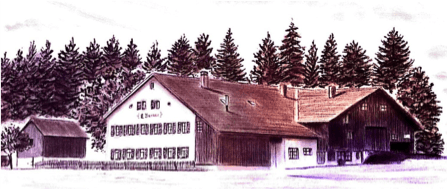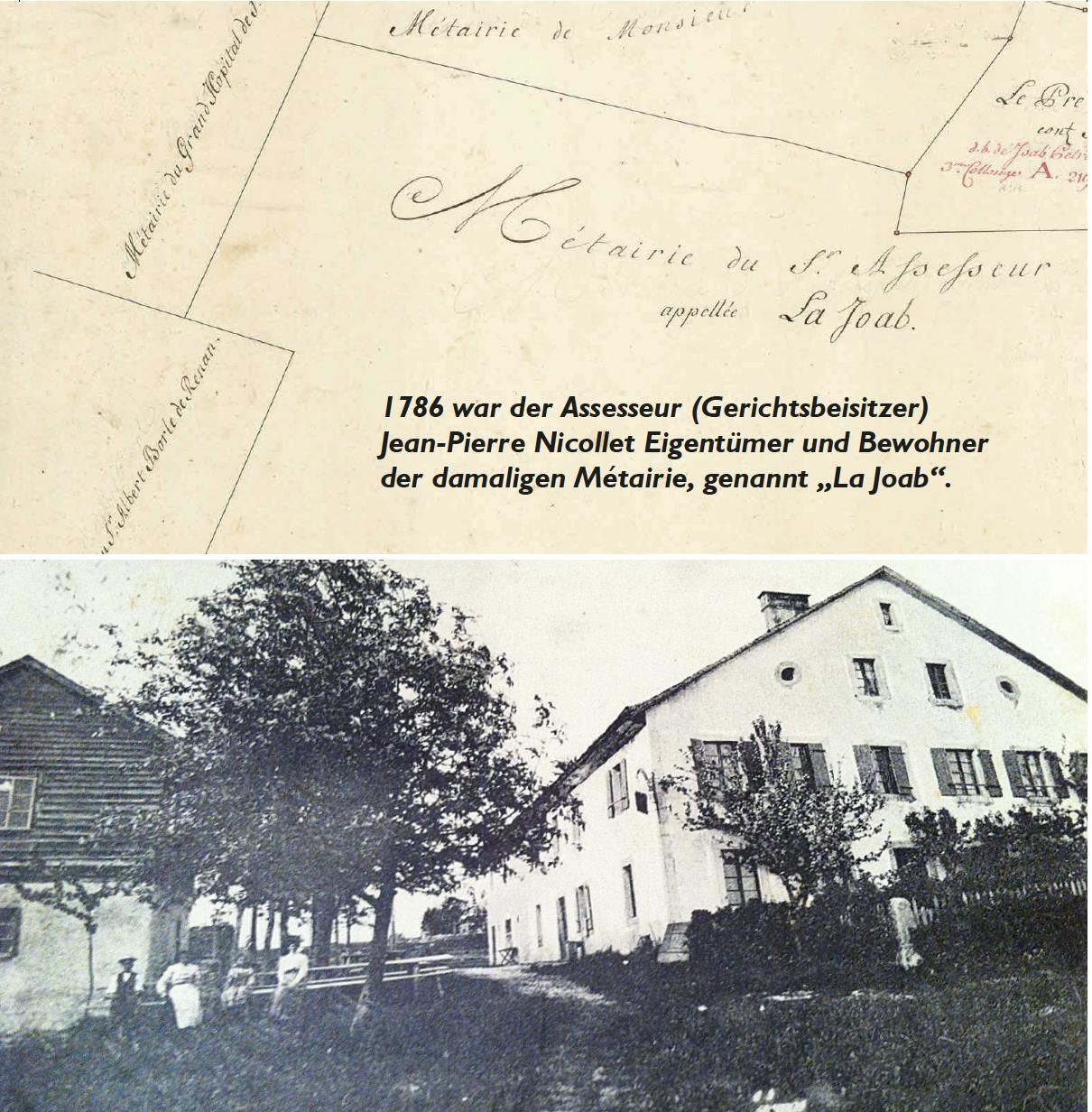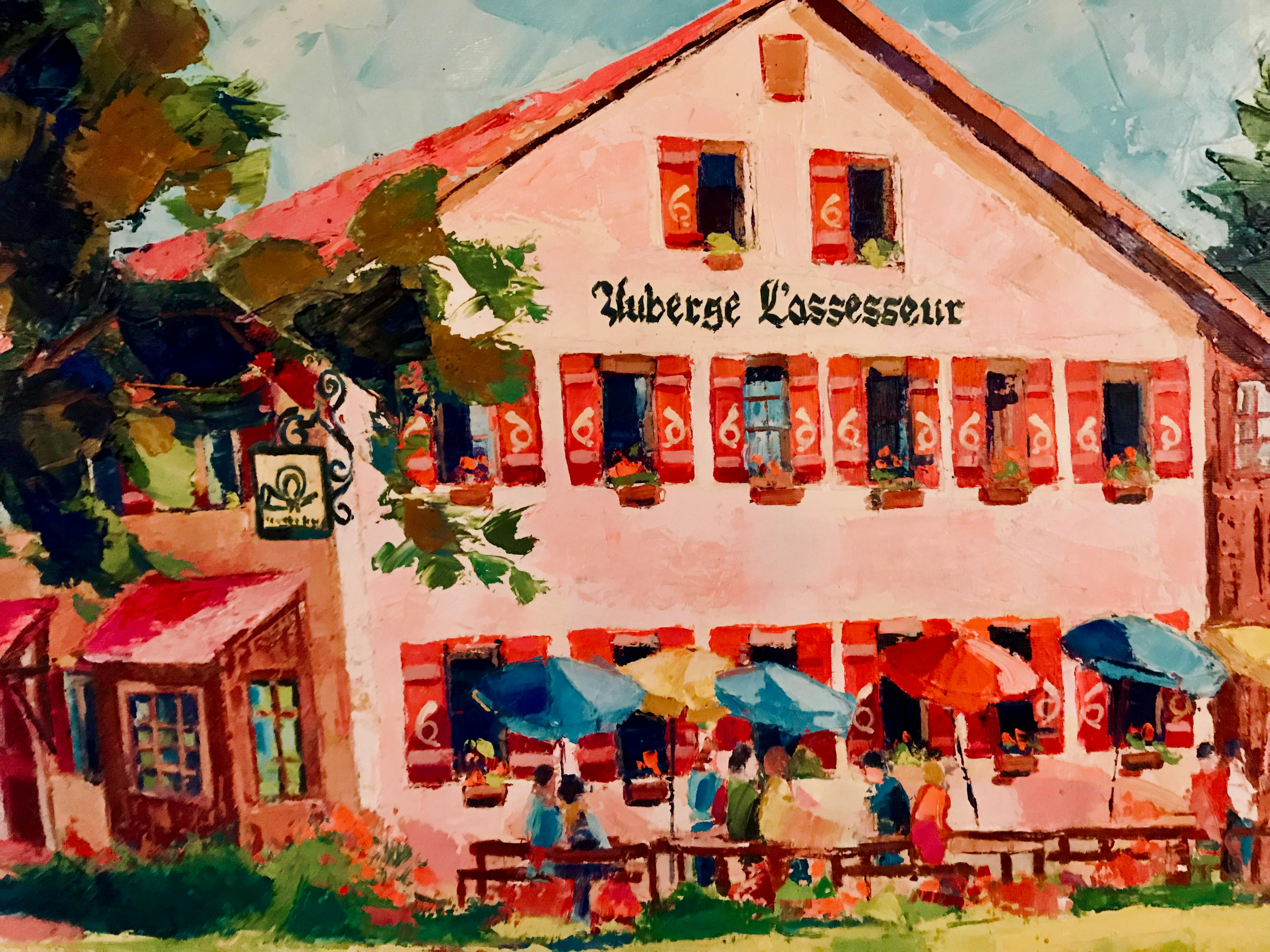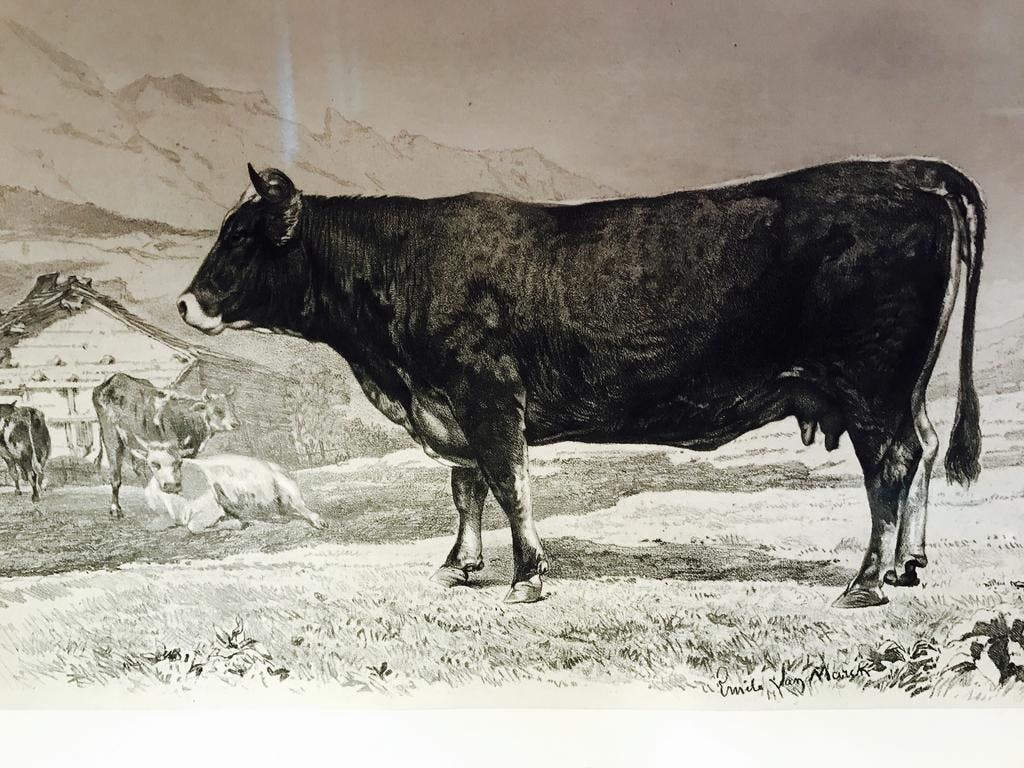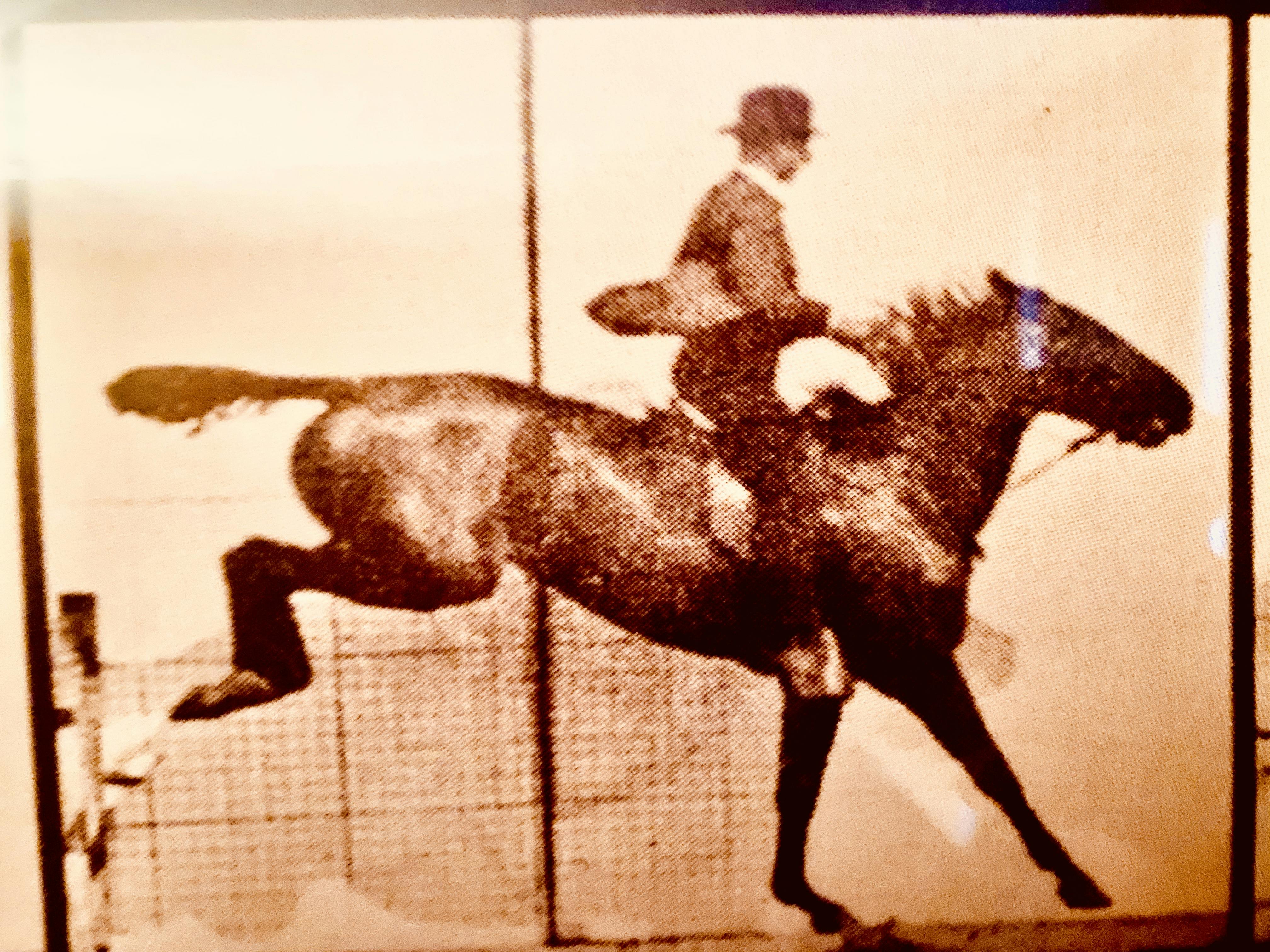History
The history of the Auberge de L'Assesseur
Even Booking.com and Trip Advisor recommend the Auberge Chez L'Assesseur on the internet, but you can't find out anything about its eventful and exciting history on the internet. My research is therefore based on oral history: I interviewed Adrian von Weissenfluh, the host of the Auberge. The existence of this building is first mentioned in 1536. An assessor or assesseur is a higher official and administrator. Or in the Middle Ages: a bailiff. Such a person once resided here, and he converted a Jura farmhouse into an inn, a hostel.
The assesseur's highest boss was the prince-bishop of Basel, and that puts us right in the middle of great world history. The region here has not only been a bone of contention between Bernese and Jura separatists for the last 100 years (we are still barely in the canton of Bern, in the outermost corner close to the border with the cantons of Jura and Neuchâtel). Even before that, there was a tussle over the area. The King of France was eyeing the Jura from the north, the old patrician republic of Bern from the south. But for almost 400 years the Bishop of Basel was able to hold his own in the region. After the Basel Reformation in 1521, he had to leave Basel and move to Porrentruy Castle, but from there he was able to maintain his Catholic hinterland in the Jura as a principality.
After 1536, the assessee up here on the Mont-Soleil plateau collected the so-called tithe from the surrounding peasants on behalf of the prince-bishopric: a tax in kind, i.e. grain, animals, etc. The farm became a bailiwick. The farm became a bailiwick, a storehouse, and the assesseur then ran a hostel with the natural resources. Why here? Because a trade route from the Old Confederation to the French Burgundy apparently also ran here and merchants stopped off with their pack animals. The beautiful old soapstone floor in the hotel's entrance hallway dates back to the 16th century. The assesseur then extended the original farmhouse piece by piece. You can still recognise the outfit of a Jura farmhouse, but it is multi-storey, which is untypical for a Jura house and rare in the area. The building was an architectural statement. It signalled to visitors: I am a manor house, a lighthouse, please respect me.
The Auberge Chez L'Assesseur felt the impact of world history again from 1712 onwards. A brief flashback: In old Bern, the Reformation was victorious in 1528. But there were believers who did not want to remain Catholic, but who did not want to be Reformed either. Not because the Reformation went too far for them, but because it did not go far enough: The Anabaptists. They saw themselves as advocates of a true Christianity, refused infant baptism and military service and constituted themselves as a free church. The Bernese lords saw the Anabaptists as a dangerous, rebellious organisation and persecuted them relentlessly. From 1534 onwards, the Anabaptists were expelled, expelled and executed. First they fled to rural Emmental or the Bernese Oberland, then to French Alsace and soon on emigrant ships to America, where they call themselves Mennonites today.
In 1712, France's King Louis Quatorze expelled the Anabaptists from Alsace. One of the last exiles open to them was the prince-bishopric of Basel here in the Jura. The bishop allowed the Anabaptists to settle on the bare Jura heights, where they cleared the forest to gain pastures and fields. And so, up here on the plateau of Mont Soleil and the Franches-Montagnes, these God-fearing, German-speaking and hard-working peasants settled. Their contribution to the tithes for our assesseur must have been considerable, and the gross national product of the region increased markedly. Even today, there are about 2000 Anabaptists in 11 Mennonite congregations in the cantons of Bern and Jura. For example, the Anabaptist community of La Chaux d'Abel, in the vicinity of the Auberge. According to Adrian von Weissenfluh, however, they don't want to talk about it up here. However, Anabaptists from the USA now come here to look for their roots, and culturally interested hikers follow the Anabaptist Trail. The fantastic old hotel interior of the inn dates from this exciting 18th century.
In 1815, after Napoleon's defeat and the withdrawal of his troops from old Switzerland and the Jura, the area was once again overtaken by great history. At the Congress of Vienna, the Catholic prince-bishopric of Basel was assigned by the great powers to the Reformed canton of Bern. As compensation for the loss of Vaud and the Aargau. As we know, the Bernese and the Jurassians never really warmed to each other. Language and confession separated them. And the Anabaptists were terrified to be under the thumb of their former persecutors again. Then, in 1820, they were recognised by Bern with restrictions. The year 1820 is also engraved in the façade above the entrance door of the Auberge, but that is probably a coincidence and the year of a rebuilding in the Auberge. Since 1848, the Anabaptists have been protected by the freedom of religion guaranteed in the Swiss Federal Constitution. And so they have stayed up here. In the Jura conflict, by the way, as German speakers they were even on the Bernese side.
The Gasthof zum Assessor survived all the turmoil, built up a horse breeding farm and today welcomes guests on cross-country skis even in winter. It is a kind of time capsule in which one can feel the ups and downs of the past and the protracted passing of time.
Stefan von Bergen, August 2018
Journalist and historian, Bern

